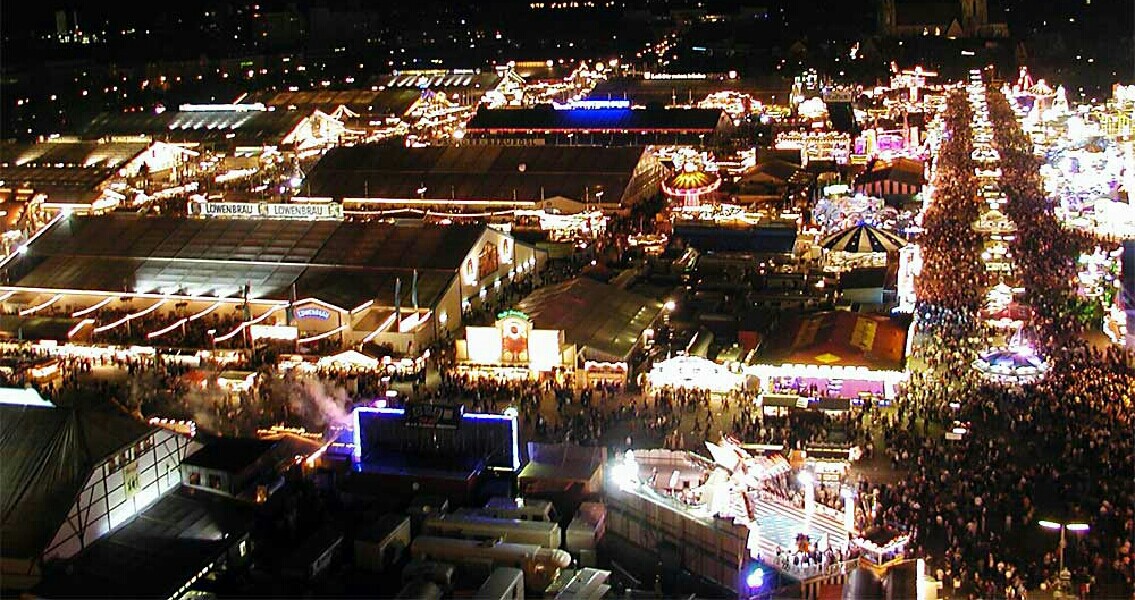<![CDATA[Every year more than a million gallons of beer are consumed over the course of sixteen to eighteen days in the city of Munich, Germany. The biggest folk festival in the world, Oktoberfest is annually attended by six million people. In little over two centuries it has grown from being a small gathering in Munich to a global occasion that, like St. Patrick's Day, is beginning to be exported across the globe. Nowadays the Oktoberfest festivities commence in the last week of September, but the first 'Oktoberfest' actually celebrates its anniversary on 12th October. On that date in 1810, Bavarian Crown Prince Ludwig, later to become King Ludwig, was married to Princess Therese of Saxony-Hildburghausen. The people of Munich were invited to attend the celebration, held on the fields in front of the city gates. The wedding became something of a Bavaria wide celebration. The festivities were brought to a close by horse races, held in the presence of the royal family. The event was intended to be a one off by the Bavarian royalty, but it soon evolved from its simple, spontaneous beginnings into something far grander. Such was the popularity of the first celebration it was decided to repeat the horse races in subsequent years; and so, in 1811, festivities were held once more on 12th October. Giving an insight into the exponential expansion the festival would experience over the coming decades, an agricultural show was added to the 1811 edition. The show was included to promote local agriculture and the Bavarian economy, showing the path the festival would take as it grew. In 1818, a carousel and two swings were added to the festival set up. Small beer stands started to crop up at the celebration, although they were a far cry from the spectacular beer tents on display today. By 1896, local breweries were starting to sense the massive opportunity offered by the increasingly popular festival. The organisers started to set up the first beer tents and beer halls at Oktoberfest with the backing of local beer producers, and drinking started to become an integral part of the festival. At the same time, the expansion of the fairground industry in Germany had seen the festival's annual fun fair grow rapidly through the 1870s, as new rides and attractions were added. Increasingly, the festival site started to be polarised into two distinct, dominant areas: the attractions of the fairground, and the beer halls. Only wars and epidemics have been able to stand in the way of Oktoberfest. The first cancellation came in 1813, in the middle of the Napoleonic Wars. Since then, events such as the 1854 cholera epidemic, the two World Wars and economic calamity have seen the festival cancelled a further twenty-three times. Following the first edition the fields at Munich's gates were named Theresienwiese (Theresa's fields) in honour of Ludwig's bride. Although the name has been shortened to 'Wiesn', it remains a reminder of the festivals beginnings. Little else has stayed the same, however. The horse racing which inspired the whole thing was cancelled in 1960, while the agricultural show now only runs every four years. ]]>
From Weddings to Beer Halls, The History of Oktoberfest
